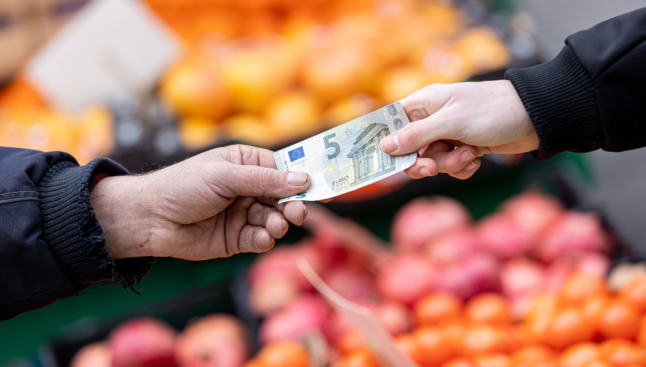With inflation having broken yet another post-war record in October, at 10.4 percent, many consumers in Germany are cutting back even on essential costs.
A new survey from the Federation of German Consumer Organizations (VZBV) finds 63 percent of consumers here have cut back their spending in general due to high inflation, while another 20 percent on top of that said they haven’t cut back yet but expect to have to soon.
With the price of some foods having gone up much higher than the average rate of inflation, 61 percent say they’ve reduced spending on groceries. Consumers have taken measures like buying cheaper butter – which has gone up 50 percent in price. At the same time, dairy and eggs have gone up by around 28 percent and meat and grains by about 20 percent.
READ ALSO: EXPLAINED: 10 ways to save money on your groceries in Germany
Almost as many, or about 56 percent, are spending less on clothing. Around a third are driving and flying less as well.
The cutbacks also have consumers thinking about long-term changes to their spending, even after inflation comes do. Many cite ongoing efforts to fight climate change as a major reason. 75 percent intend to spend less on clothing over the longer term, and wear existing things longer. 60 percent are looking at buying energy-saving devices.
45 percent of consumers are also looking to repair defective devices rather than buy new ones, but expect certain guarantees from manufacturers, including that a mobile phone would last for five years.



 Please whitelist us to continue reading.
Please whitelist us to continue reading.
Member comments